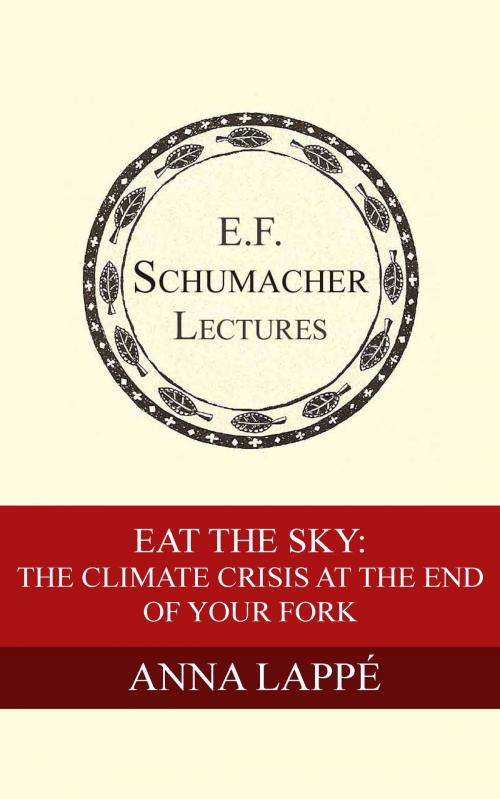Eat the Sky: The Climate Crisis at the End of Your Fork
Nonfiction, Science & Nature, Technology, Food Industry & Science, Agriculture & Animal Husbandry| Author: | Anna Lappé, Hildegarde Hannum | ISBN: | 1230000208733 |
| Publisher: | Schumacher Center for a New Economics | Publication: | September 27, 2008 |
| Imprint: | Language: | English |
| Author: | Anna Lappé, Hildegarde Hannum |
| ISBN: | 1230000208733 |
| Publisher: | Schumacher Center for a New Economics |
| Publication: | September 27, 2008 |
| Imprint: | |
| Language: | English |
The collection of lectures and publications from the Schumacher Center for a New Economics represents some of the foremost voices on a new economics.
There is a fairly standard list of environmentally friendly actions American consumers are typically encouraged to take: “drive less, buy a hybrid car, buy energy-efficient appliances, change our light bulbs.” But Anna Lappé points out that this list entirely neglects food. Since 31 percent of greenhouse gas emissions can be traced back to food production, this is an extremely important element of climate change for us to consider. The food industry, she argues, does seem to acknowledge (at least to some extent) its role in the climate debate, but food companies seem to be making a concerted effort to portray themselves as part of the solution rather than part of the problem. Lappé calls on us not only to consider changing our own behavior but also to go a step further and question larger systemic issues such as continued government subsidies for agribusinesses.
The collection of lectures and publications from the Schumacher Center for a New Economics represents some of the foremost voices on a new economics.
There is a fairly standard list of environmentally friendly actions American consumers are typically encouraged to take: “drive less, buy a hybrid car, buy energy-efficient appliances, change our light bulbs.” But Anna Lappé points out that this list entirely neglects food. Since 31 percent of greenhouse gas emissions can be traced back to food production, this is an extremely important element of climate change for us to consider. The food industry, she argues, does seem to acknowledge (at least to some extent) its role in the climate debate, but food companies seem to be making a concerted effort to portray themselves as part of the solution rather than part of the problem. Lappé calls on us not only to consider changing our own behavior but also to go a step further and question larger systemic issues such as continued government subsidies for agribusinesses.















